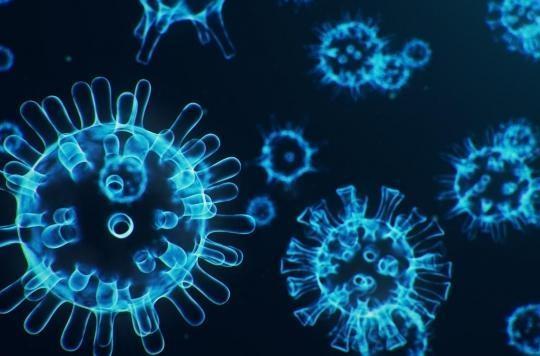“We have a new virus that is entering the human population for the first time and it is therefore very difficult to say when we will be able to defeat it,” the WHO warned on May 13 at a press conference in Geneva, Switzerland. .

The new coronavirus “may never go away”. As part of the world, including France, begins its deconfinement, more and more experts fear that SARS-CoV-2 will drag on and that we will have to learn to live with it. During a press conference which was held virtually in Geneva (Switzerland) on Wednesday May 13, the World Health Organization (WHO) joined these concerns. “We have a new virus that is entering the human population for the first time and it is therefore very difficult to say when we will be able to defeat it”, said Michael Ryan, director of health emergencies at the WHO, at a time when the global death toll is approaching 300,000. “This virus could become endemic in our communities,” he warned, alarmist.
Five months after the appearance of the Covid-19 epidemic in China, many unknowns remain around the new coronavirus. The main gray area concerns immunity. It would seem, in the current state of knowledge, that it is rather relapses than re-infections. That is to say that we have a first episode with fever. We realize that we have the virus and then for a few days all the symptoms disappear, and after one to two weeks, the symptoms reappear. We have seen a few cases with people who had symptoms again, but much less severe than at the beginning. When we redo a PCR, we realize that there is still virus. So, did the virus persist in a much weaker state for a few weeks and then start multiplying again? We do not know”summarized Karine Lacombe, head of the infectious diseases department at Saint-Antoine hospital in Paris in France info April 20.
“If it’s an infection, that is, we caught it once, we didn’t develop protective antibodies and we catch it again because we don’t is not protected, so it completely changes the situation, because it means that we will no longer have herd immunity other than that which we can acquire with a vaccine”she worried.
“Four or five years” before being able to consider controlling the epidemic?
Also, the whole world is counting on a vaccine to fight SARS-CoV-2. To develop a serum capable of protecting the world’s population against this virus, it would take between 12 and 24 months. However, at this stage of the research, it is necessary to add the time necessary to make it available to the whole world, recalls the WHO. Moreover, the emerging rivalries between states in the vaccine race could seriously complicate the process…”We had very effective vaccines against measles (…) But for lack of political will and lack of determination to investigate health systems (…) we have not been able to eliminate this disease”recalls Michael Ryan, cautious.
If we take into account the uncertainties regarding the effectiveness of a vaccine against Covid-19, its effectiveness, its safety and its production and equitable distribution, the Indian Soumya Swaminathan, chief scientist of the WHO, bets on “four or five years before “to be able to consider controlling” the epidemic, she explains to the FinancialTimes. Hoping that SARS-CoV-2 does not mutate to the point of rendering the vaccine obsolete. Thus, WHO experts refuse to reveal a precise agenda on the evolution of the epidemic and prefer to warn against any eventuality.
A seasonal virus?
Recently, Harvard researchers published in the specialized journal Science a rather disturbing study on the question. According to their modeling, “if immunity to SARS-CoV-2 is permanent, the virus could disappear for five years or more after causing a major outbreak”. On the other hand, if it proves to last less than a year like that of the common cold, the disease could return each winter from 2025, the expected end of the endemic period. “If immunity to SARS-CoV-2 declines in the same way as that of related coronaviruses, recurrent winter epidemics are likely to occur in the years to come”explain the scientists.
This is why, in the United States, the most affected country in the world with a total of 84,000 dead, experts expect the worst in the months following the summer (it is possible that the heat and the humidity temporarily weaken the virus). According to Rick Bright, a senior health official recently fired by President Donald Trump, he risks having a “resurgence of cases in the fall. 2020 will be the darkest winter in modern history”he warned.

.















